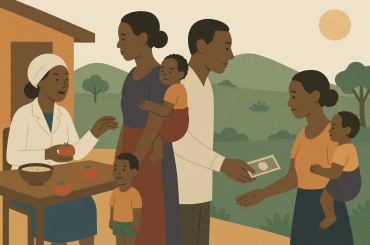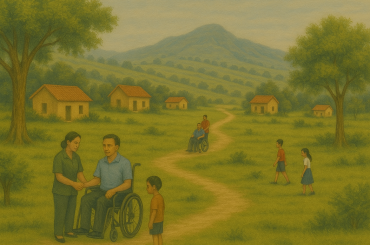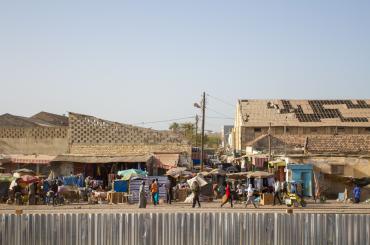
Social Protection
-

Targeting the ultra-poor through the Graduation approach: Insights from BRAC
Since the 1990s, BRAC's targeting the ultra-poor approach has helped millions improve their standard of living. Why have ultra-poor targeting programmes been effective, and what is the future of these programmes?
-

Cash transfers can outperform more complex economic aid programmes
Benchmarking multi-dimensional in-kind programmes against cost-equivalent unconditional cash transfers reveals that cash can be more effective in improving consumption and asset accumulation.
-

How disability changes household’s economic behaviour in Vietnam
When a family member becomes disabled, individuals become more risk averse—a finding with significant implications for policies that address poverty and vulnerability in disability-affected households.
-

The price effects of cash transfer programmes: Insights from research
Cash transfer programmes are designed to reduce poverty and improve well-being, but do they also drive up local prices and harm those who don’t receive them?
-

Supporting the transition to digital cash transfers in rural Mexico
Women in Mexico who switched to digital cash transfers face higher costs and time accessing payments but gain bargaining power. Improving ATM access, reducing fees, providing timely information on the date of transfers and boosting financial literacy...
-

How can governments fund unemployment insurance in low-income settings?
Unemployment insurance (UI) in Senegal can provide significant welfare gains, but given high levels of informality and a lack of transparency about workers’ status, these gains depend on programme design. UI funded through payroll taxes is effective ...
-

Timing matters: Long-term impacts of Conditional Cash Transfers in Nicaragua
Conditional cash transfers in Nicaragua during primary school led to higher schooling and earnings in adulthood, but mechanisms differed by sex
-

How to target aid after a disaster
Existing disaster aid programmes focus on property owners that experience physical damages. Evidence from Nepal shows that a broader and less targeted approach could be easier to implement and better for welfare.
-

Breaking the silence: How can social networks become better safety nets?
Correcting inaccurate beliefs about peers can strengthen social networks, encourage people to talk about their financial and mental health concerns, and improve socioeconomic outcomes in settings where individuals lack support from formal institution...